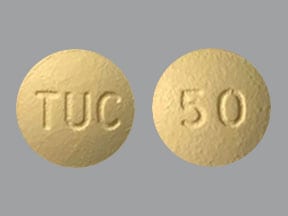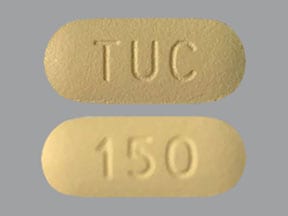What is Tukysa?
Tukysa is a prescription medicine used with the medicines trastuzumab and capecitabine to treat adults with:
- human epidermal growth factor receptor-2 (HER2) positive breast cancer that has spread to other parts of the body such as the brain (metastatic), or that cannot be removed by surgery,and
- who have received one or more anti-HER2 breast cancer treatments.
It is not known if Tukysa is safe and effective in children.
What is the most important information I should know about Tukysa?
Tukysa is used with the medicines trastuzumab and capecitabine, also read the medication guide that comes with capecitabine.
What should I tell my healthcare provider before taking Tukysa?
Before taking Tukysa, tell your healthcare provider about all of your medical conditions, including if you:
- have liver problems.
- are pregnant or plan to become pregnant. Tukysa can harm your unborn baby.
Females who are able to become pregnant:- Your healthcare provider will do a pregnancy test before you start treatment with Tukysa.
- You should use effective birth control (contraception) during treatment with Tukysa and for at least 1 week after the last dose of Tukysa. Talk with your healthcare provider about forms of birth control that you can use during this time.
- Tell your healthcare provider right away if you become pregnant or think you may be pregnant during treatment with Tukysa.
- Males with female partner who are able to become pregnant should use effective birth control during treatment with Tukysa and for at least 1 week after the last dose of Tukysa.
- are breastfeeding or plan to breastfeed. It is not known if Tukysa passes into your breast milk. Do not breastfeed during treatment with Tukysa and for at least 1 week after the last dose of Tukysa.
Tell your healthcare provider about all the medicines you take, including prescription and over-the-counter medicines, vitamins, and herbal supplements. Tukysa may affect the way your other medicines work, and other medicines may affect the way Tukysa works.
Know the medicines you take. Keep a list of all the medicines you take and show it to your healthcare provider and pharmacist every time you get a new medicine.
How should I take Tukysa?
- Take Tukysa exactly as your healthcare provider tells you.
- Tukysa is used with the medicines trastuzumab and capecitabine. Your healthcare provider will tell you the dose of trastuzumab and capecitabine you will take and how you will receive them.
- Take Tukysa 2 times a day, with or without a meal.
- Take Tukysa about 12 hours apart or at the same times every day.
- Swallow Tukysa tablets whole. Do not chew, crush, or split Tukysa tablets before swallowing. Do not take Tukysa tablets if they are broken, cracked, or damaged.
- If you vomit or miss a dose of Tukysa, take your next dose at your regular time.
What are the possible side effects of Tukysa?
Tukysa may cause serious side effects, including:
- Diarrhea. Diarrhea is common with Tukysa and can sometimes be severe. Tell your healthcare provider if you have a change in your bowel movements or severe diarrhea. Severe diarrhea can lead to loss of too much body fluids (dehydration), low blood pressure, kidney problems and death. Your healthcare provider may prescribe medicines to treat your diarrhea during treatment with Tukysa.
- Liver Problems. Tukysa can cause severe liver problems. Your healthcare provider will do blood tests to check your liver function before and every 3 weeks during treatment with Tukysa, or as needed. Tell your healthcare provider right away if you have any signs and symptoms of liver problems including:
- itching
- yellowing of your skin or eyes
- dark or brown urine (tea-colored)
- pain in the upper right side of your stomach-area (abdomen)
- feel very tired
- decreased appetite
- bleeding or bruising more easily than normal
The most common side effects of Tukysa:
- diarrhea
- rash, redness, pain, swelling or blisters on the palms of your hands or soles of your feet
- nausea
- tiredness
- increased liver function blood tests
- vomiting
- mouth sores (stomatitis)
- decreased appetite
- stomach-area (abdomen) pain
- headache
- low red blood cell counts (anemia)
- rash
Your healthcare provider may change your dose of Tukysa, temporarily stop, or permanently stop treatment with Tukysa if you have certain side effects.
Tukysa may cause fertility problems in males and females, which may affect the ability to have children. Talk to your healthcare provider if you have concerns about fertility.
These are not all of the possible side effects of Tukysa. Call your doctor for medical advice about side effects. You may report side effects to FDA at 1-800-FDA-1088.
Tukysa Images
General information about the safe and effective use of Tukysa
Medicines are sometimes prescribed for conditions not listed in the Patient Information. Do not use Tukysa for a condition for which it was not prescribed. Do not give Tukysa to other people, even if they have the same symptoms that you have. It may harm them. You can ask your pharmacist or healthcare provider for information about Tukysa that is written for healthcare professionals.
How should I store Tukysa?
- Store Tukysa at room temperature 68°F to 77°F (20ºC to 25ºC).
- Keep Tukysa in its original container. The Tukysa bottle contains a desiccant packet to help keep your tablets dry (protect from moisture). Keep the desiccant in the bottle.
- Tightly close the bottle of Tukysa after you take your dose.
- Tukysa must be used within 3 months after opening the bottle. Throw away (discard) any unused tablets 3 months after opening the bottle.
Keep Tukysa and all medicines out of reach of children.
What are the ingredients in Tukysa?
Active ingredient: tucatinib
Inactive ingredients:
Tablet core: copovidone, crospovidone, sodium chloride, potassium chloride, sodium bicarbonate, colloidal silicon dioxide, magnesium stearate, and microcrystalline cellulose.
Tablet coating: yellow film coat: polyvinyl alcohol, titanium dioxide, macrogol/polyethylene glycol, talc, and yellow iron oxide non-irradiated.
For more information, call 1-855-473-2436 (1-855-4SEAGEN) or go to www.TUKYSA.com.







